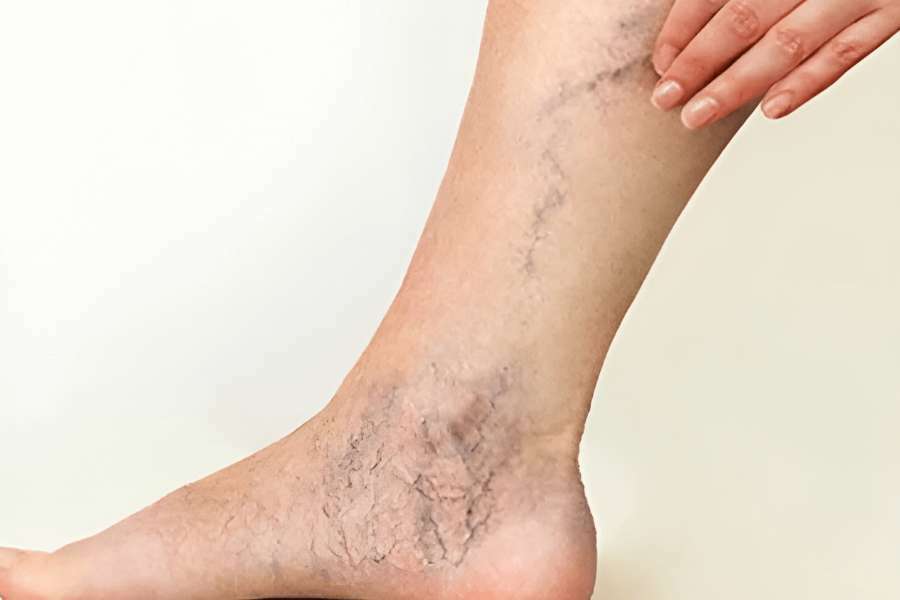When considering spider vein removal in Riyadh, choosing the right specialist is a decision that can significantly impact both the safety and effectiveness of your treatment. The Saudi healthcare landscape offers a wide array of options, from large hospitals to specialized aesthetic clinics. Navigating this can be challenging, but focusing on key criteria will help you select a professional who can provide the best care for your specific needs. This guide will walk you through the essential factors to consider, from a specialist's qualifications to the questions you should ask during your initial consultation. Spider veins treatment in Riyadh offers advanced solutions like laser therapy and sclerotherapy to effectively reduce the appearance of visible veins and restore smooth, clear skin.
1. The Right Specialization and Qualifications
Spider veins are primarily a cosmetic concern, but they are also a medical condition related to the vascular system. Therefore, the ideal specialist should have a strong background in treating vascular issues. Look for practitioners with one of the following specializations:

- Vascular Surgeon: These specialists are highly trained in the diagnosis and treatment of diseases of the arteries, veins, and lymphatic system. While spider vein removal is a less invasive procedure, a vascular surgeon's extensive knowledge of the entire vascular system ensures they can identify and address any underlying issues, such as venous insufficiency, which can cause spider veins. Their training includes both surgical and non-surgical methods.
- Dermatologist: A dermatologist specializes in conditions of the skin, hair, and nails. Many dermatologists have significant experience in cosmetic procedures, including laser therapy and sclerotherapy for spider veins. They are an excellent choice for superficial spider veins, especially those on the face and other areas where cosmetic results are the primary goal.
- Interventional Radiologist: These doctors use imaging techniques like ultrasound to guide minimally invasive procedures. They are particularly skilled in using ultrasound-guided sclerotherapy, which is effective for deeper or larger spider veins that are not visible to the naked eye.
In Riyadh, as in many other major cities, it is crucial to verify a doctor's credentials. All healthcare professionals in Saudi Arabia must be licensed by the Saudi Commission for Health Specialties (SCFHS). You should look for a specialist who is board-certified in their field, as this indicates a high level of training and expertise.
2. Clinic and Technology Reputation
The specialist is only as good as the facility they work in. A reputable clinic or hospital provides a safe and professional environment and is equipped with the latest technology. When evaluating a clinic, consider the following:
- Accreditation: Check if the clinic is accredited by a recognized national or international body. Accreditation signifies that the facility meets strict standards for patient care and safety.
- Technology: The effectiveness of spider vein treatments like laser therapy and sclerotherapy is heavily dependent on the quality of the equipment. Ask what type of laser or sclerosant solution the clinic uses. A clinic that invests in modern, proven technology is more likely to provide better results.
- Hygiene and Safety Protocols: Ensure the clinic follows strict hygiene and sterilization protocols. This is critical for preventing infections and ensuring a safe treatment experience.
- Patient Reviews and Testimonials: Online reviews and testimonials from previous patients can offer valuable insights into a specialist's bedside manner, the clinic's service quality, and the overall patient experience. While one negative review should not be the sole basis for a decision, a pattern of poor feedback should be a red flag.
3. The Consultation: What to Ask
The initial consultation is your opportunity to assess the specialist's expertise and determine if they are the right fit for you. Come prepared with a list of questions. A good specialist will take the time to answer all your concerns clearly and honestly.
Here are some crucial questions to ask:
- What is your experience in treating spider veins? Ask about their specific experience with the type of veins you have, and how many procedures they have performed.
- What are my treatment options? A good specialist will not offer a one-size-fits-all solution. They should present a customized treatment plan based on your unique condition, explaining the pros and cons of each option (e.g., sclerotherapy vs. laser).
- What are the potential risks and side effects? Understand the possible outcomes, including common side effects like bruising and swelling, as well as rarer complications. A specialist who is transparent about risks is trustworthy.
- What is the expected outcome and how many sessions will I need? Be realistic about the results. A specialist should provide a clear and honest assessment of what can be achieved and the number of sessions required to reach your goals.
- What is the total cost of the treatment? Get a clear breakdown of the costs, including the price per session and any potential follow-up costs. Inquire whether the total cost is all-inclusive or if there are any hidden fees.
- What is the aftercare and recovery process? Understand what you need to do post-treatment to ensure a smooth recovery and optimal results. This may include wearing compression stockings or avoiding certain activities.
Choosing a spider vein specialist in Riyadh is a personal journey that requires careful research and consideration. By focusing on a doctor's specialization and credentials, evaluating the clinic's reputation, and asking the right questions during your consultation, you can make a confident and informed decision that leads to a safe and successful outcome.




Comments